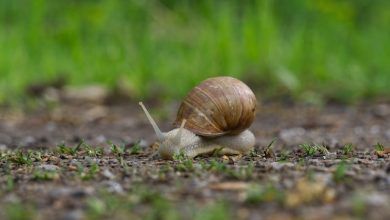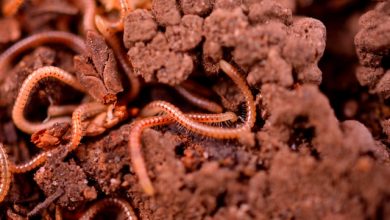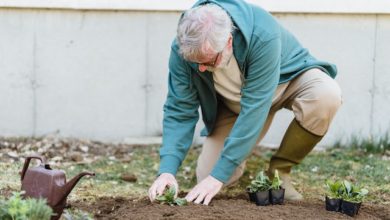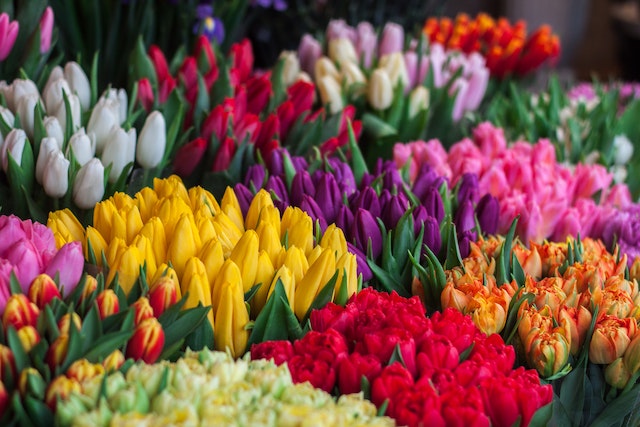
How to Grow Tulips
Without tulips, spring will not feel quite the same. From cool, muted tones to warm, brilliant hues, these magnificent bulbs’ lovely blossoms are available in almost every color imaginable. They thrive in pots and are excellent for bringing color to borders in April and May.
When planted in the middle to end of autumn, tulips are spring bulbs. Despite the fact that tulips are theoretically perennial, many kinds only reliably last one year due to years of breeding to obtain the most stunning flowers.
Each autumn, a lot of gardeners sow new bulbs to guarantee a good display. Planting new bulbs every year is necessary if you are growing tulips in pots.
Early flowering tulips bloom from late March to April, mid-season tulips bloom from April to May, and late flowering tulips bloom in May. Growing a variety of different varieties will let you extend your displays.
Additionally, you can combine different flower heights, hues, and shapes. Combining tulips can be quite an art, but you can get ready-selected combinations to grow at the garden center or online.
HOW TO GROW TULIPS
It is best to plant tulip bulbs in sunny, wet soil in the middle to late the autumn, between October and November. Plant bulbs 5 cm apart, pointed end up, at a depth that is at least three times that of the bulb. Every fall, plant new bulbs for the greatest displays.
Where to plant tulips
All varieties of tulips thrive in a sunny, protected location with well-drained soil; it’s a good idea to place tulips behind perennials on a border so that their new leaves will hide the tulips’ dying foliage.
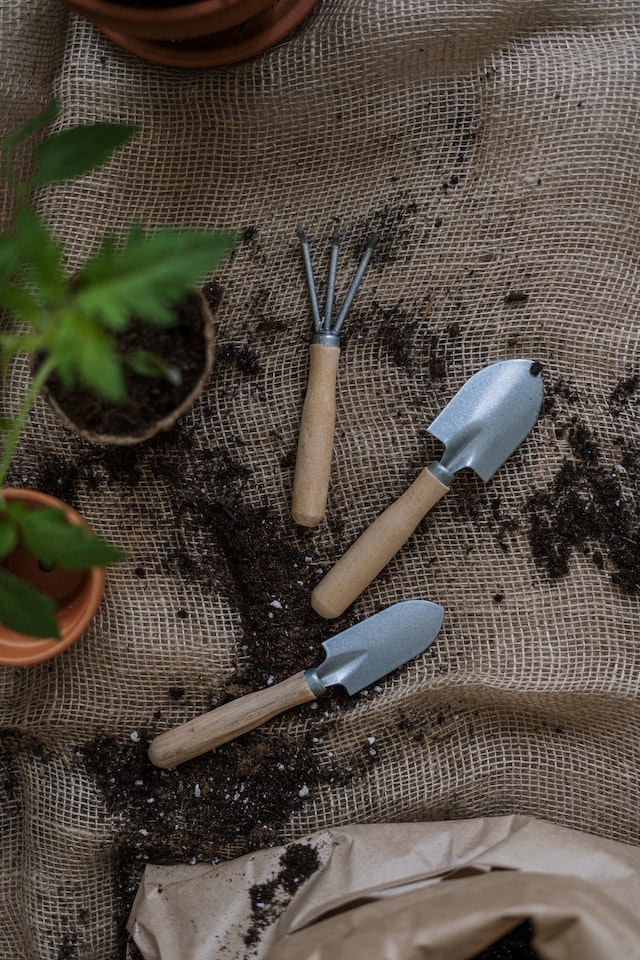
By adding lots of well-rotted organic matter before planting, hard clay or sandy soils can be improved. A little horticultural grit could be added to the bottom of the planting hole if your soil is particularly dense.
Additionally, tulips thrive in containers and grow well in multipurpose compost that is peat-free.
When to plant tulips
It is possible to plant tulip bulbs as early as mid-October, but November is generally considered to be the best month since it lowers the risk of tulip fire, a fungus that is eradicated by cooler weather and is less likely to spread.
Bulbs of tulips can be planted as late as December or even January; they should still blossom the following spring.
You can buy potted tulips in pots in the spring at the garden center if you completely neglect to buy bulbs; there will be plenty to make one or two pot displays.
How to plant tulips
Use a garden trowel or bulb planter to prepare a planting hole in the fall, then lower the bulb into it with the pointed end facing upward. Tulip bulbs should be planted 20 cm (8 inches) deep, or around three times their height, with a distance of 5 cm (2 inches) between each bulb. Plant tulips in groups for the most eye-catching show.
In pots, tulips thrive. Plant the bulbs three times their depth in the container, leaving a few centimeters between each one, and half-fill it with multipurpose compost free of peat. Adding compost will help.
How to plant tulips and evergreens in a pot
For a longer-lasting show, you may also put tulips and other spring bulbs together in a container.
How to deadhead tulips
Once they have finished blooming, tulips can be deadheaded. You will not get the seed if you do not deadhead species types. After a month or so after flowering, when the leaves have turned yellow, you can trim the foliage. The bulbs will be less robust the following year if you prematurely trim the leaves.
How do I get species tulips to reflower?
How to propagate tulips
The best strategy is to plant new tulip bulbs every autumn if you want to enjoy their blooming every year. You might also lift the bulbs and put them away.
After a month after flowering, when the foliage has turned yellow, you can do this by lifting the plants with a hand fork. Take off the stem, the leaves, and the bulb’s flaky exterior by pulling, cutting, or otherwise removing them. After drying, place the bulbs in a paper bag for storage.
How to lift and store tulip bulbs
You can carefully pluck away offset bulbs that have grown on the primary bulb’s sides. In paper bags, keep these with their parent bulbs in a frost-free, cool location. In the fall, offsets can be planted, but at a deeper depth of around 25 cm (10 inches).
Species bulbs in the garden will self-seed. To encourage more plants, avoid deadheading and let the seed propagate.
Growing tulips: problem-solving
Because the spores are carried by wind and rain, the fungal disease known as tulip fire (Botrytis tulipea) is especially problematic during wet seasons.
Unattractive brown blotches can be seen all over the plant, as well as distorted and stunted shoots and leaves, which are indications. If any of your plants are impacted, get rid of them, burn them, and wait at least two years before planting tulips there again.
If you want to use string bulbs repeatedly, avoid this issue by dipping them in a fungal solution. The risk of the disease should be decreased by planting in November.
Advice for buying tulips
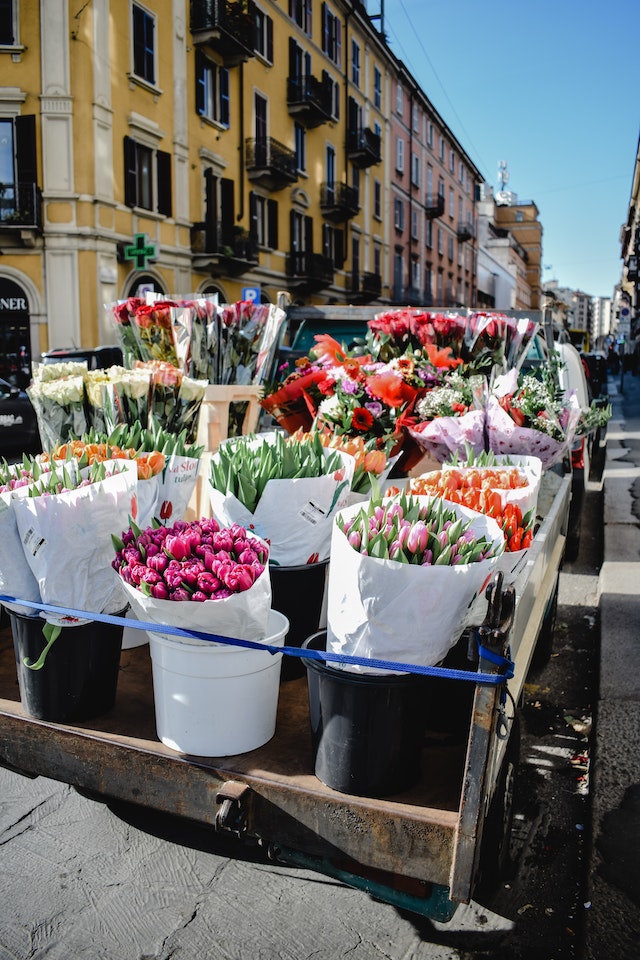
From late summer, you can purchase tulip bulbs at the garden center, but for the best selection, shop online. On specialized bulb websites, you may always place an online order for bulbs. They will arrive in the autumn.
Many bulb vendors’ websites allow you to make a wish list, which is helpful if you see some kinds in the spring that you want to plant in the fall. Because some kinds do sell out, it pays to order in advance.
Verify that your bulbs are solid to the touch and mold is not present. Until you are ready to plant them in the fall, keep the bulbs in a cold, dark spot. While you can find some deals if you wait until after Christmas, your options might not be as wide as they would be earlier in the tulip planting season.
• Tulip types and flowering times
There are more than a dozen different varieties of tulips, each of which blooms at a slightly different point in spring and has a flower with a varied height and form. The length of the flowering period varies from year to year and is influenced by the weather.
Tulips in the North of the country might flower several weeks later than those in the South; thus, they also rely on what region of the country you live in.
• Early tulips (late March to April)
Single early: some of the tulips bloom early; typically, this occurs in late March or early April. On sturdy stems, simple, cup-shaped flowers grow. Try Princes Irene or Apricot Beauty.
Early double flowers with tall stems and double, peony-like petals. Mid- to early-April. Try the tulip “,” which has delicate golden blossoms.
Flowers that resemble water lilies by Kaufmanniana hybrids. Of the most dependable perennial species.
Small and fragile (10–15 cm in height, or 4” – 6”) but hardy and long-lived are species/botanical tulips. They are perfect for fronts of borders, rockeries, gravel gardens, and containers. If you don’t deadhead them, they will return year after year and reproduce on their own. Some bloom early in the season, while others do so later.
• Mid-season tulips (April to May)
Triumph tulips are hardy, robust, April-blooming tulips with sturdy stems. Ideal for a windy location. Try the colors brown sugar, wine and yellow burned orange, and lipstick pink Barcelona.
Huge, goblet-shaped flowers on tall tulips that are Darwin hybrids. Strong and wine-resistant stems are a feature. Perennially trustworthy. Apeldoorn or Apricot Beauty are good choices.
Fosteriana hybrids: These have narrow flowers that, when fully exposed to the sun, open up broad. Occasionally have brown or purple colorings. Emperor tulips were once called thus. Try the breathtaking Purissima white tulip.
The delicate, pointy flowers of these tulips resemble lilies, as suggested by their name, the Lil flowered variety. Try orange Ballerina or the perfumed tulip “White Triumphator.”
The cup-shaped flowers of these “fringed” plants have frilly edges. Try the Tulip ‘Fancy Frills’ or ‘Oviedo.’
Viridiflora: The petals frequently have green flecks on them. Try the red-tinged “Flaming Spring Green,” the white and green “Spring Green” Tulip, or the dark pink “Doll’s Minuet.”
Rembrandt: long-stemmed cultivars with bi-colored, streaked blooms that resemble those in Dutch still life. Try Helmar or Tulip’ Sorbet.
Fringed or twisted blooms that resemble parrots. The stems’ flopping effect is rather appealing. Consider the Tulip “Black Parrot” or “Flaming Parrot.”
Greigii hybrids: low-growing plants with striped or marbled foliage and big, vibrant blooms. Consistently perennial. Try Red Riding Hood by Tulip.
• Late tulips (May)
Single late/Darwin-oval flowers on tall, sturdy stalks that can withstand wind. Try the dark purple “Queen of Night” tulip, the peachy “Menton” tulip, or the white “Maureen” tulip.
One of the final tulips to bloom and one that bloomed double late with a peony. The big blooms resemble peonies.
FAQs
Where do tulips grow best?
An area with afternoon or full sun is preferred by tulips. Tulips prefer a cool environment; therefore, in zones 7 and 8, they find a position that receives only morning sun.
The soil needs to be dry or sandy, well-draining, fertile, neutral to slightly acidic, and. The presence of too much wetness is disliked by all tulips.
Are tulips easy to grow?
Despite their breathtaking beauty, tulips are among the simplest flowers to grow in a garden. Even a novice gardener can anticipate seeing a lovely flower in the spring if they plant a bulb in the fall.
The majority of gardens prefer to treat tulip bulbs as annuals and plant new ones every fall because tulip bulbs that have been put in pots rarely bloom again. The moment has come to start organizing your spring garden now that you are aware that tulips do return every year.
What is the best way to grow tulips?
In the North, full sun is best for tulips, whereas, in the South, partial shade is preferable. Plant tulip bulbs with their pointed end up in well-drained soil that ranges in pH from 6 to 7. Improve clay soils with poor drainage and sandy soils by adding compost. Plant your bulbs 4-6″ apart.
How many years do tulips last?
Three to five years, the majority of current tulip cultivars remain in good bloom.
When to Plant Your Tulips. Autumn is the ideal time to plant tulip bulbs. Before you plant, the soil must have cooled off from the summer growing season, which could occur in September in cold regions (zones 3 to 5), October in transitional temperatures (zones 6 to 7), or November or December in warm climates (zone 8 to 9).
Will tulips multiply?
Tulips of the same species not only bloom every year but also reproduce and group together to form clumps that get larger every year, a process known as naturalizing.
Can tulips grow in pots?
In pots, tulips flourish really well. Plant the bulbs three times their depth in the peat-free, multifunctional compost, leaving a few centimeters between each one, and fill the container with compost halfway. Add compost to the top.
Do tulips need a lot of water?
Rarely is any water required by tulips. Once you have planted them, give them a good soak, and then let them go till spring. The only exception to this rule is when there is a prolonged drought, in which case you should water your lawn every week to keep the ground moist.
Do you deadhead tulips?
Yes! Tulip deadheading is usually a good idea because it helps the plant grow and encourages quicker reproduction. Deadheading these plants on schedule also promotes them to blossom the next year without any further work on your part.
What do I do with tulips after they bloom?
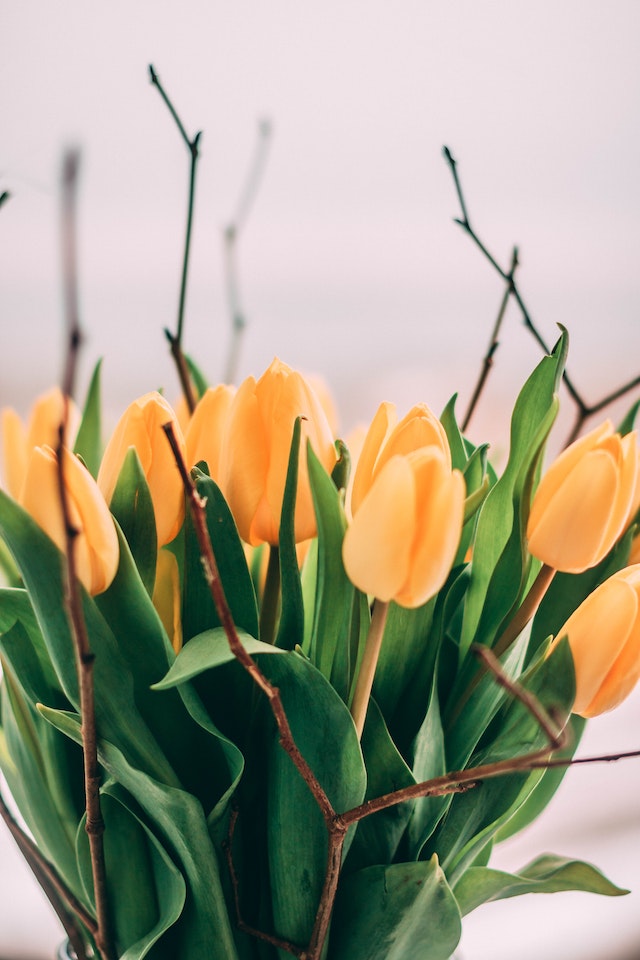
How to care for tulips after they bloom in order to promote reblooming. Once the blooms have faded, cut off the seed heads to encourage your tulips to blossom once more the following year. After the foliage has naturally died back, dig the bulbs up around six weeks after they have bloomed. Any that are infected or damaged should be thrown away after drying.
Do tulips regrow after cutting?
Tulips can be grown as annuals or perennials in a cutting garden, and both types of tulips should be harvested when they are completely colored but not yet opened. The tulips will bloom in the vase and continue to thrive after being cut.
Do tulips spread?
Yes! Tulip seeds are naturally dispersed (asexual reproduction) with little assistance from humans. Following their spread, they develop into bulbs and ultimately turn into an integral part of the flower.
Can you leave bulbs in the ground all year?
After blooming, most bulbs can be kept inside or left in the ground all year. Never remove a bulb’s leaves while they are still green after it has flowered; instead, let the foliage naturally die back.
How many tulips can you plant together?
Tulips look their best when planted in clusters of 50 or more bulbs, as garden designers are aware. Per square foot, allow for 9–12 bulbs. Put 2 to 3 inches between the bulbs for a complete look.
Stretching the bulbs with a 4″ gap will make them appear fuller, but not quite.
Do tulips like coffee grounds?
It is a good choice for tulips due to the low nitrogen content and delayed release into the ground. Despite being slightly acidic, coffee grinds’ pH level is within permissible bounds.
Can I plant store-bought tulips?
Take the tulip bulbs out of the ground once the leaves have dried. Put the bulbs in a brown paper bag and keep them dry and cool in a container.
Plant the tulips outside in the fall, as soon as the ground reaches a temperature of about 60 degrees Fahrenheit. Water the plant after planting, but wait to water it again until the leaves have emerged.
How do I save my potted tulip bulbs for next year?
Place the potted plant in a space with plenty of direct sunlight and a cool climate. Allow the leaves to naturally turn yellow and wither away. The technique enables the bulb to store energy for growth for the next year.
